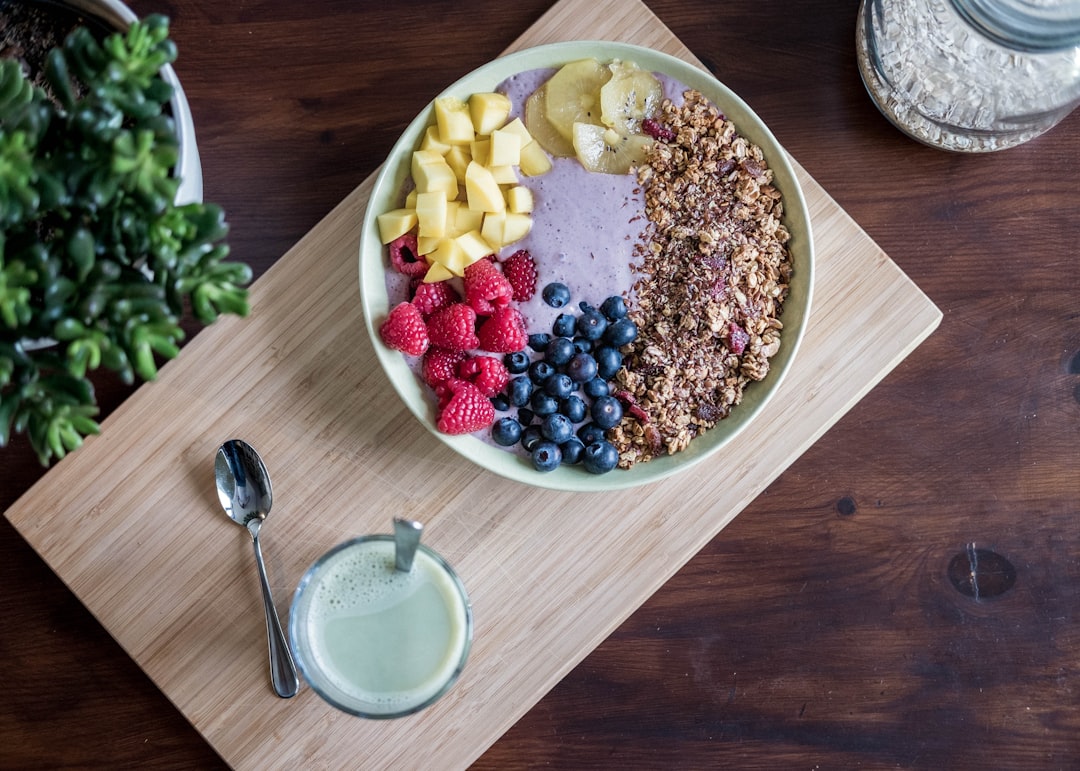Introduction
Good skin health is essential for looking and feeling your best. While there are many ways to improve skin health, including a healthy diet, regular exercise, and adequate sleep, vitamins are a key part of the equation. Vitamins are essential for maintaining healthy skin and can help to improve a variety of skin conditions, including acne, wrinkles, and dryness. In this article, we’ll discuss the essential vitamins for optimal skin health and how they can help you achieve a healthier complexion.
Vitamins A, C, and E
Vitamins A, C, and E are three of the most important vitamins for skin health. Vitamin A is an antioxidant that helps to reduce inflammation and skin damage caused by free radicals and UV radiation. Vitamin C is essential for the production of collagen, which is a protein that helps to keep skin looking plump and youthful. Vitamin E is also an antioxidant that helps to protect skin from environmental damage.
Vitamin B Complex
The B-complex vitamins are essential for healthy skin. Biotin, also known as vitamin B7, helps to promote healthy cell growth, while niacinamide (vitamin B3) helps to reduce inflammation and redness. Thiamine (vitamin B1) helps to improve skin elasticity and reduce the signs of aging. Riboflavin (vitamin B2) also helps to reduce inflammation, while pantothenic acid (vitamin B5) helps to keep skin moisturized.
Vitamin D
Vitamin D is essential for healthy skin, as it helps to reduce inflammation and improve skin barrier function. Vitamin D is also important for the production of collagen, which helps to keep skin looking plump and youthful.
Vitamin K
Vitamin K is an essential vitamin for skin health, as it helps to reduce dark circles and puffiness around the eyes. Vitamin K also helps to reduce the appearance of bruises, scars, and stretch marks.
Conclusion
Vitamins are an essential part of skin health, as they help to reduce inflammation and protect skin from environmental damage. Vitamins A, C, and E are three of the most important vitamins for skin health, while B-complex vitamins, vitamin D, and vitamin K are also important for healthy skin. Eating a healthy diet that includes plenty of fruits and vegetables is the best way to get your daily dose of essential vitamins for optimal skin health.Vitamin A helps to protect against sun damage and reduce wrinkles. Vitamin C helps to promote collagen production and reduce inflammation. Vitamin E is an antioxidant that helps to protect skin from environmental stressors, such as UV rays and pollutants. B-complex vitamins, such as B6, B12, and biotin, help to promote healthy skin, hair, and nails. Vitamin D is important for overall health, as it helps the body absorb calcium and helps to prevent skin disorders. Vitamin K is important for skin healing, as it helps to reduce bruising and promotes wound healing.Vitamin A is important for vision, as it helps to maintain healthy eyesight and helps to keep the eyes moist. Vitamin E is important for skin health, as it helps to protect the skin from free radical damage and may reduce the risk of skin cancer.Vitamin C is important for immunity, as it helps to protect the body from infection and may reduce the risk of colds and other illnesses. Vitamin D is important for bone health, as it helps to promote calcium absorption and may reduce the risk of osteoporosis.Vitamin A is important for vision, as it helps to maintain the health of the retina and may reduce the risk of night blindness. Vitamin K is important for blood clotting, as it helps to promote normal blood clotting and may reduce the risk of excessive bleeding. Vitamin B12 is important for energy production, as it helps to create new red blood cells and may reduce the risk of anemia.Vitamin D is important for bone health, as it helps to absorb calcium and phosphate from the intestines. It may also help to reduce the risk of osteoporosis and some types of cancer. Vitamin C is important for immune health, as it helps to boost the body’s ability to fight off infections and may reduce the risk of certain cardiovascular diseases.Additionally, Vitamin C is an antioxidant, which means it can help protect cells from damage caused by free radicals.The best sources of vitamin C are fruits and vegetables. Citrus fruits like oranges, lemons, and grapefruits are particularly high in vitamin C, as are many other fruits and vegetables like broccoli, spinach, bell peppers, kale, and tomatoes. Other good sources of vitamin C include fortified cereals, juices, dairy products, and some
Photo by Jannis Brandt on Unsplash
fortified foods such as breads, crackers, and cookies. Vitamin C is also available in supplement form.It is important to note that the body does not store vitamin C, so it is important to get it through food, supplements, or both on a daily basis.Vitamin C is an important nutrient for many bodily functions, including the formation of collagen, which helps to strengthen bones and teeth, form red blood cells, and keep skin healthy. Vitamin C also helps the body absorb iron, which is necessary for healthy red blood cells. Additionally, vitamin C helps to boost the immune system by providing protection against free radicals and aiding in the production of white blood cells.Finally, vitamin C helps to produce collagen, an important component of skin and connective tissues. Collagen helps to keep skin looking young and healthy and is necessary for wound healing.In summary, vitamin C is essential for overall health. It helps to protect against infection, boosts the immune system, and aids in wound healing and skin health.Vitamin C is also necessary to help create collagen, which is a structural protein that helps keep skin looking young and healthy.Additionally, collagen helps to promote wound healing and keeps skin looking plump and youthful.Overall, vitamin C and collagen are both important for overall health and skin health. Vitamin C is essential for fighting off infection and boosting the immune system, while collagen helps to keep skin looking young and healthy and aids in wound healing.Vitamin C is also important for the production of hormones, which can help regulate mood, energy levels, and sleep. Additionally, it helps with the absorption of iron, which is important for oxygenating cells and tissues in the body. Finally, it helps to prevent damage caused by free radicals, which can lead to premature aging.The combination of these benefits makes copper an ideal mineral for overall health and wellbeing. Copper also plays important roles in the formation of collagen, which helps to maintain skin’s elasticity, and in the production of red blood cells, which helps to transport oxygen throughout the body. Copper is also important for maintaining bone health, helping to form the connective tissue that gives bones strength.Copper is also essential for the absorption of iron, which is needed for proper red blood cell formation and energy production. Copper also helps the body to absorb and use zinc, a mineral that is important for the immune system. Copper helps to form enzymes that are involved in energy production and metabolism, as well as enzymes involved in regulating blood sugar levels. It is also essential for the production of adenosine triphosphate (ATP), the energy source for all cells.Copper helps to form collagen, which is an important structural component of bones, blood vessels, and skin. It is also important for nerve function and helps to produce the myelin sheath, which protects nerve cells. In addition, copper helps to form pigment molecules in the eye, which are responsible for color vision.Copper is also involved in making red blood cells, and is important for proper iron absorption. It also helps to activate enzymes involved in energy production, and helps to regulate blood pressure and the immune system. Copper is also essential for proper brain development and for producing neurotransmitters.Copper is an essential trace mineral that plays an important role in human health. It is essential for various metabolic processes, and is involved in blood cell formation, iron absorption, energy production, and the synthesis of collagen and elastin. Copper also helps to regulate nerve activity, and is necessary for proper brain development. In addition, copper helps to activate enzymes involved in energy production, and helps to regulate blood pressure and the immune system. Copper is necessary for the production of neurotransmitters, which are chemical messengers that help to transmit signals between nerve cells.Copper is also necessary for the production of red blood cells, which carry oxygen throughout the body. Copper helps to absorb iron from the diet, and helps to store it in the body for later use. It is also important for the production of collagen, which is needed for healthy skin, bones, and connective tissues. Copper also helps to protect cells from damage caused by free radicals.Copper helps to absorb iron, which is necessary for carrying oxygen in the blood. Copper also helps to produce neurotransmitters, which are chemical messengers that help regulate the body’s processes, such as mood and appetite. Copper also helps to regulate blood pressure and heart rate. Copper is also an important component




